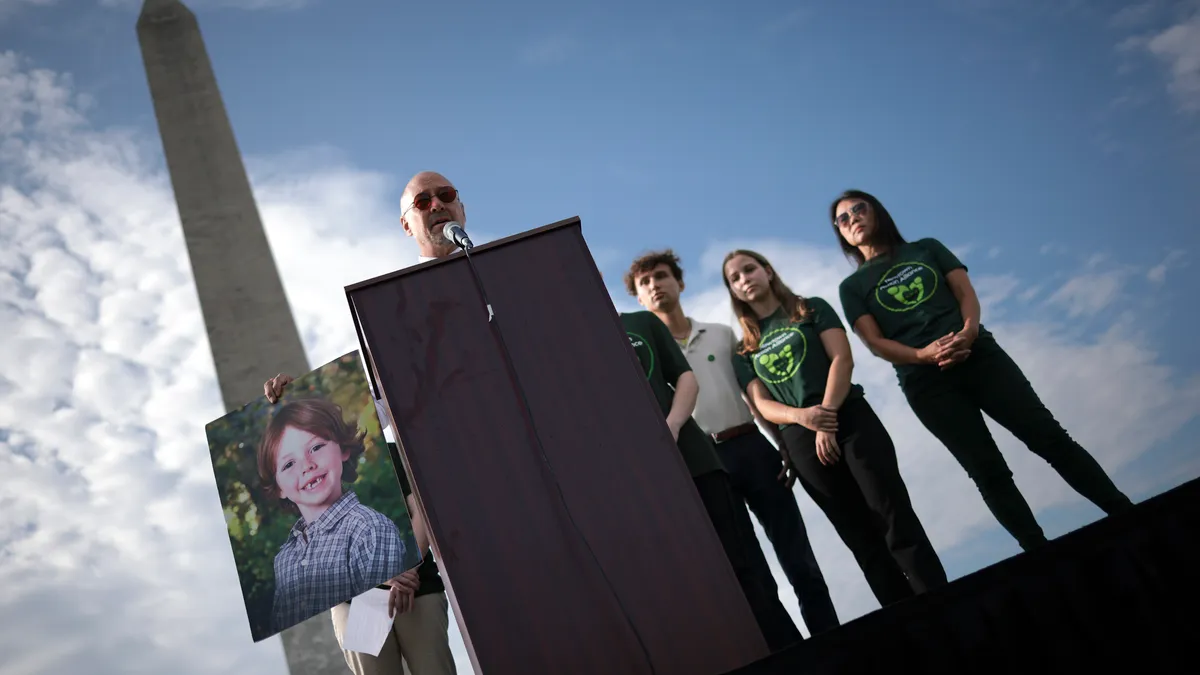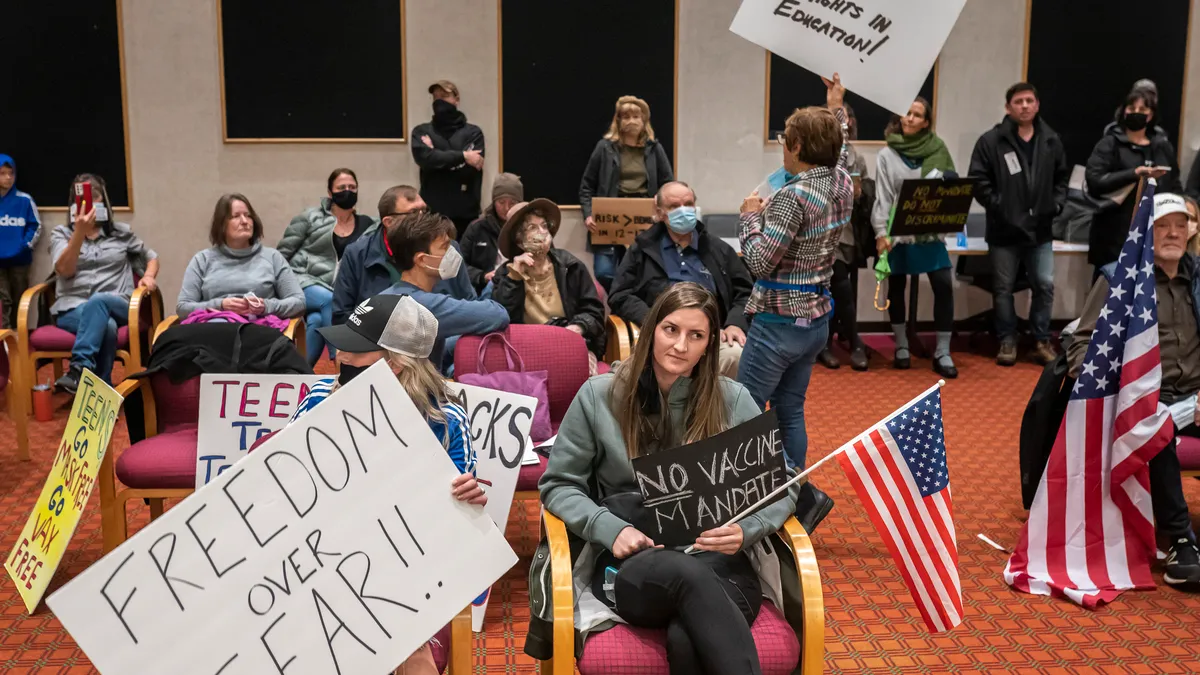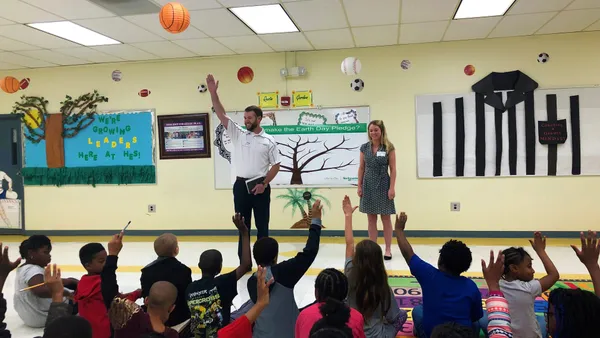Dive Brief:
- Hoping to help at-risk youth in his hometown of Akron, Ohio, basketball superstar LeBron James is launching the I Promise School, where students receive free bicycles, meals and tuition to the University of Akron, SB Nation reports.
- Funded through his Family Foundation and I Promise Network, the school's educational model borrows from that of the successful KIPP charter network, but it is a traditional public school rather than a charter or private school.
- The school will also offer support to students' families, such as job placement and GED assistance for parents, an on-site food bank, and support for students who feel pressured by socioeconomic factors.
Dive Insight:
LeBron James' school differs from similar efforts by other celebrities in that it is 100% a traditional public school as opposed to a charter — a detail that has been lauded by supporters of public school districts, who see charters as taking funds from those schools.
Regardless of one's stance, it's a commendable example of a celebrity working with their hometown in an effort to make a meaningful impact on learners' futures. With partnerships between districts and communities, corporations, organizations and philanthropists on the rise (and increasingly beneficial in the context of lagging educational funding in many states), it's the latest example of what can be done — as well as the positive PR a celebrity can gain from doing so, making it a win-win for both sides if the effort is well-thought-out and finds success. After all, not every philanthropic effort in education is a success story, as donors like Mark Zuckerberg have found, and still others can come with demands that are ultimately untenable.
If James' effort is successful, however, it could be easier for other communities with high at-risk populations to get local celebrities to attach their names and funding to their own takes on that model.
Of course, there's also the risks that come with policymakers coming to see these funding outlets as the norm and keeping funding at existing levels, which in some cases are still below pre-recession levels. While philanthropic donations or assistance from other partnerships can serve as a helpful supplement, administrators must ensure they don't come to be seen as a given in the statehouse.













